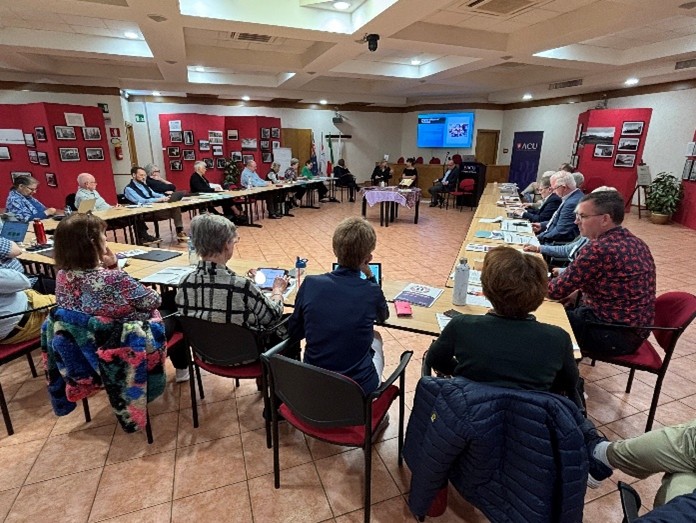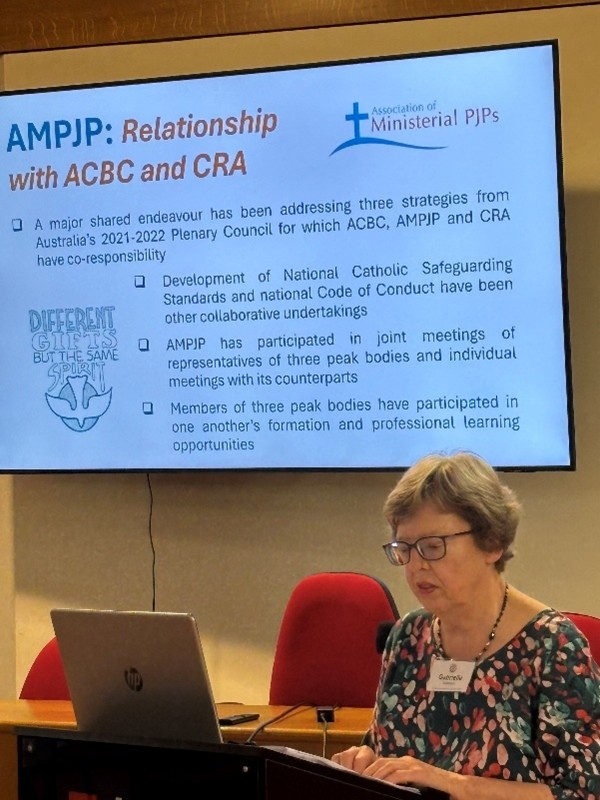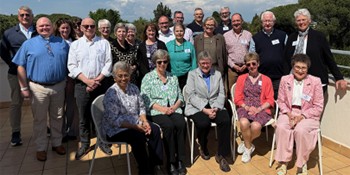It was a significant time to be in Rome – the days between Pope Francis’ funeral and the commencement of the conclave which elected Pope Leo XIV. I was there for the Inclusive Governance in a Synodal Church symposium which brought together 30 experts and practitioners in Church governance. The symposium had been scheduled for 28-30 April months before these historic occurrences.
Now, as the delegates gathered in Rome, we were in a time of transition, moving from the familiar to the unknown, what is termed a ‘liminal space’. The conference focused on lay leadership in the Church, which had been promoted by Pope Francis, and on synodality, an invitation from Pope Francis to “journey together … to serve our brothers and sisters along the way” (1). We asked ourselves would the new pope continue to promote wider participation in the life of the Church as Pope Francis had done?
It was against this background that we came together at the Australian Catholic University (ACU) campus in Rome to consider the outcomes of the first year of the Inclusive Governance in a Synodal Church project. The project has been funded by the Porticus Foundation, and is led by Adjunct Professor Susan Pascoe, a Director of Mercy Health, and hosted by ACU. I am a member of the project steering committee.
Significantly, the project has focused on the new Church governance form known as MPJPs (ministerial public juridic persons) like Mercy Ministry Companions (MMC). It has explored why this model has been adopted, particularly in English-speaking countries. It has also examined MPJPs’ ‘fit’ with being a synodal Church, or as being ‘companions in ministry’ as has been our focus in establishing and developing MMC.
In its first year, the study identified 58 MPJPs established over 34 years in Australia, New Zealand, Canada, the United States, Ireland, the United Kingdom, Singapore and Malaysia. Mostly, they sponsor education, health and aged care, and social services ministries, previously under the stewardship of religious institutes. MPJP structures and governance arrangements are often unique, reflecting not only an MPJP’s heritage and the nature of its ministries and resources but also requirements of the local jurisdiction.
Delegates from across these countries shared their experiences and learnings. I presented a paper entitled ‘Perspectives on and Hopes for Lay Governance in a Missionary Synodal Church: An Australian Perspective’. From a case study of the 14 Australian MPJPs, I argued that they model an approach to being Church in Australia that is indeed synodal. Both the conference presentations and conversations with delegates over pasta and vino gave us many insights into a new era for the Church. Bishop Paul Tighe, Secretary in the Holy See’s Dicastery for Culture and Education, was Principal Celebrant at a Mass for symposium delegates and then joined us for dinner, along with the Australian Ambassador-designate to the Holy See, the Honourable Keith Pitt.
A report of the first stage of the project will be published later in the year. It is intended to extend the project into a second year focused on formation for the laity in the governance in a synodal Church.
Let us give thanks for the inspirational life of Pope Francis and ask God’s blessings on Pope Leo as we continue to “journey together … to serve our brothers and sisters along the way” (1).
Gabrielle McMullen AM, Trustee Director
(1) Pope Francis (2015) Address at the ceremony commemorating the fiftieth anniversary of the institution of the Synod of Bishops; https://www.vatican.va/content/francesco/en/speeches/2015/october/documents/papa-francesco_20151017_50-anniversario-sinodo.html



